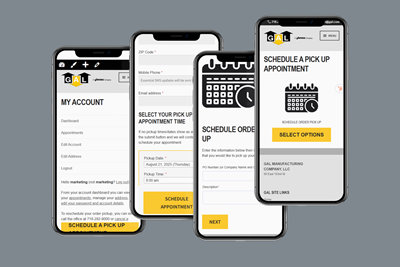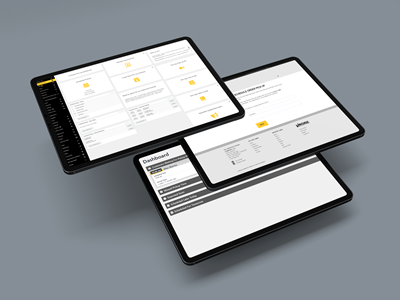Mobile Pickup Scheduling App for Manufacturing Logistics
Outcome Snapshot
Designed, developed, and deployed a custom WordPress + WooCommerce progressive web app (PWA) that enabled real-time scheduling and mobile check-in for a manufacturing company’s logistics operations—improving customer experience and internal coordination without the cost of a custom enterprise solution.
The Strategic Challenge
The client—an established industrial manufacturer—needed to modernize their customer pickup process. The goal: give customers a mobile-first way to schedule, check in, and communicate, while equipping staff with real-time visibility and control. Off-the-shelf solutions failed to meet dual requirements of customer UX and back-end operations efficiency. The client needed speed, cost-efficiency, brand consistency, and a secure, customizable solution.
My Role
I led the project end-to-end:
- Chose and architected the full tech stack
- Designed the UX/UI and user flow logic
- Built the application with extensive custom code
- Directed a small support team on content and lead integration
- Trained staff and authored full internal documentation
Strategy + Solution
To meet the tight timeline and evolving scope, I built a mobile-first PWA on WordPress + WooCommerce with custom code enhancements. The system:
- Delivers secure, role-based dashboards for staff (Admin, Manager, Team Member)
- Provides mobile customers with native app-like experience—schedule and check-in from phone
- Integrates live chat, SMS alerts, and push notifications
- Features a dynamic operations dashboard that tracks real-time check-ins, late arrivals, and cancellations
- Empowers staff to manage logistics on any device with full rescheduling/editing capabilities
- Hides and renames WooCommerce defaults for clean UX on both sides
Business Impact
- Built and launched in under 90 days
- Replaced manual pickup coordination with fully automated system
- Reduced customer friction and staff communication delays
- Scaled across teams with minimal training or infrastructure overhead
- Delivered a mobile UX on par with native apps—without the dev cost or app store complexity



